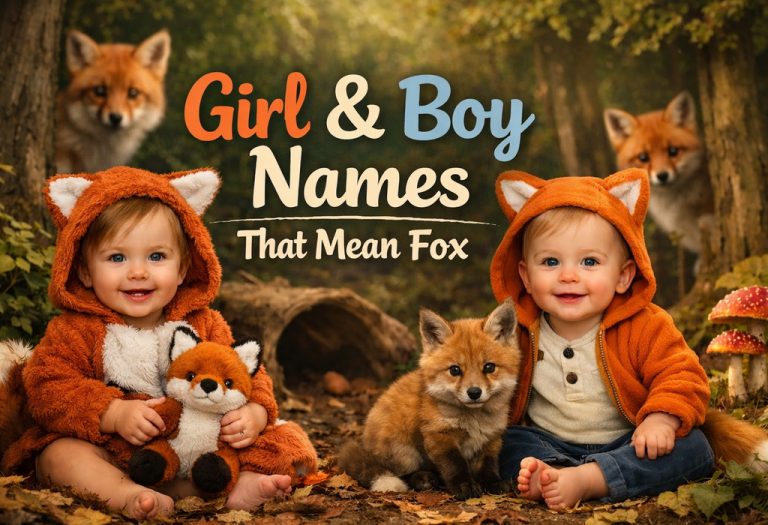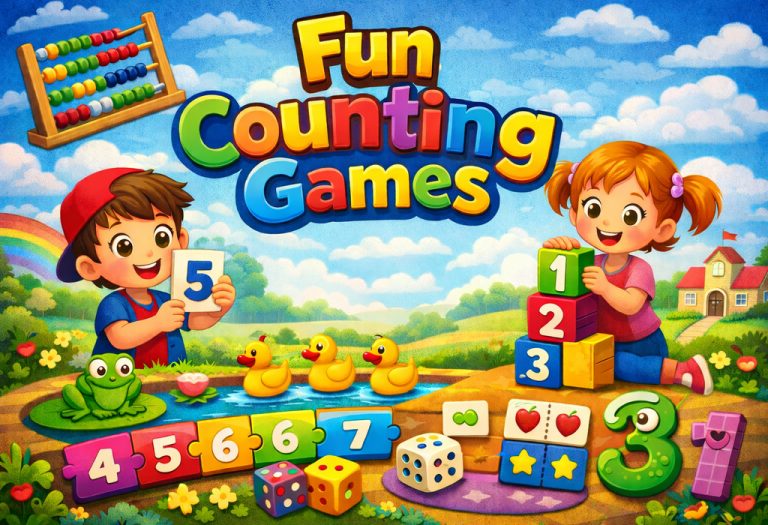How to Make a Baby Laugh – Simple Tricks That Always Work
There are few things in this world as precious as your baby’s laughter. Babies start to smile after three months, and from then on, they lose no time in learning to laugh, squeal, and giggle with delight at things that amuse them. A child’s laughter can be quite infectious, and soon everyone around is bound to break into smiles. This is sure to make you want to have your baby laughing as often as possible! Plus, seeing your baby laugh for the first time is just like heaven. If you want to learn more tips on how to make a baby laugh, this article will serve as a guide for you. So, get ready to make your kiddo laugh, giggle, and squeal with excitement and happiness.
How to Make a Baby Laugh?
Making an infant laugh is not an impossible task. Finding the right triggers is essential, and once you have these identified, you will get your baby laughing in minutes! Here are some things that might help you get your baby to chortle with glee every time.
1. Funny Sounds
Speaking in a strange voice can be amusing to your baby. Imitating a favourite cartoon character or holding your nostrils when talking can elicit a good deal of laughter over and over again. Certain sounds, such as slurping, hiccups, chomping, imitating a car or motorbike revving up, etc., can have a similar effect on the baby.
2. Eskimo Kisses
Rubbing your nose against your baby’s gently is sure to be greeted by a few giggles every time. Physical contact with a baby is also a way of bonding with your child. Quite a few babies are likely to want an encore about 100 times each day!
3. The Peeking Game
This has been a favourite with babies from time immemorial. Put up your hands in front of your face and say “peek”. Then move your hands or peek at them, saying “boo”. Alternatively, you can also hide behind furniture and surprise the baby when they come looking for you. Knowing that you are going to pop up from behind whatever is obstructing the view can keep your baby engrossed for a long while.
A 2005 study shows that babies as early as 3.5 months begin to understand the concept of object permanence and can start reacting to it (1).
4. Photos of Babies
Smiling faces of other children are likely to evoke a similar response from your little one. Pictures of babies being naughty or dressed in costumes are also likely to set off your baby on a laughter riot.
5. Make Some Noise
What seems like noise to us might actually seem like music to your baby! Just the sound of paper ripping can be enough to set off some babies, while others start off when they hear the sound of power tools, such as a hand drill or small saw. So find some old newspapers or a handy tool and get ready for some laughs from your little one.
6. Tickles All the Way
Of all the things that make babies laugh, tickles win hands down. An added advantage is that it is a fun activity for you, too. Some babies have a few ticklish spots on their bodies, while the slightest touch can set others off. So, find what sets off your baby and get ready for some laughs.
7. This Little Piggy
The interactive ‘This Little Piggy’ story game, where you run your fingers along the baby’s hand and arm, is sure to become a favourite soon. Tell baby about the five little pigs as you count on baby’s fingers and start up the arm ending in tickles. After the first time, the anticipation of what is about to happen will be enough to have the baby giggling even as you start.
8. Soft Toy Fun
You can try some play-acting with soft toys to make your baby laugh while telling a story at the same time. Or you can just use the soft toys to tickle your child and keep them giggling. Make sure the soft toys you use are hypoallergenic and lightweight so the baby can handle them as well. Include toys of different colours, shapes, and sizes to bring in some variety every time.
9. Find Some Live Animals
If you are thinking about what makes babies laugh, then animals need to be near the top of your list. If you have pets at home, you don’t have to overthink it. Just get the baby to watch the antics of your pets for a while, and soon the laughter will start. Soon, it will become a daily routine for the baby. And if you do not have pets at home, take the baby out into the yard or for a walk and point out the dogs, cats, and birds. This way, you can also start teaching your baby to appreciate nature at an early age.
10. Play the Munching Game
Babies of all ages love to be cuddled and snuggled. Physical contact is an essential part of bonding with your child, and you can make use of it to have your baby in peals of laughter. As you cuddle your little one, say that you are going to eat up that little finger and pretend to chomp off the finger with soft touches of your lips. This type of munching is a hit with babies of all ages, as well as older children.
11. Turn on the Silliness
Babies find it funny when things are out of the ordinary. So, doing something silly like placing a funny hat on your baby’s head or your own is bound to amuse your munchkin. Jumping like a monkey or walking funny is also sure to have your baby in fits of laughter.
12. Recruit Siblings
Spending time with siblings is something that keeps babies happy at all times. They tend to find everything that their older brother or sister does really funny. All the sibling needs to do is be themselves! Babies often enjoy watching their siblings play, dance, or sing, and are likely to break out into laughter at their antics from time to time. If there is no sibling, then cousins and the neighbourhood kids will also do just fine!
13. Chasing Game
If your baby is crawling around, then a chasing game might be the sure-fire way to get some laughs. Get down on your hands and knees, saying, “I’m coming to get you”, and watch your little one chuckle with delight and speed up on all fours across the house. The game of pretending to ‘catch’ never gets old when it comes to babies.
14. Be a Copycat
It is said that imitation is the best form of flattery. When it comes to babies, read that as ‘the best form of entertainment’. Simply keep copying your baby’s actions, facial expressions, hand movements, and sounds for uninterrupted moments of laughter and joy.
15. Get Some Exercise
Put your baby on his back and slowly stretch out an arm and a leg, preferably from opposite sides. Then, move those limbs back towards the chest. Repeat this process with the other set of limbs and observe how your baby responds. While the baby is on his back, hold both legs with your hands and move them in an air pedalling motion. This also helps eliminate any excess gas that the baby has, while keeping them happy and giggling. You can also give the baby some exercise by sitting him on your knee and bouncing him up and down, as if riding a pretend horse.
16. Blow Raspberries
Raspberries are a classic laughter option. Gently blow on your baby’s arms, cheeks, stomach, or feet. Make sure to smile and laugh out loud in between blowing raspberries to make your little one join in.
17. Fake Biting
Pretending to nibble your baby’s hands and legs because you find them tasty can elicit a laugh from your baby. Your touch, combined with laughter and smiles, will make the baby follow suit. You can repeat this prank on their hands, fingers, tummy, and toes.
18. Steal Your Nose Game
Babies love the proximity of their primary caregivers as they feel more secure, thus bonding well through activities involving touch. You can play the very popular game: ‘Steal Your Nose.’ Pretend that you have taken your baby’s nose and display your thumb (acting as their nose) through your fingers. They’ll definitely chuckle!
19. Pat-a-cake
Perform some actions while you chant the rhyme ‘pat-a-cake.’ Clap your hands and pat your thighs alternately, all while continuing to sing and laugh. Your baby will surely respond with delightful giggles. Your little one will definitely laugh with joy.
20. Chuckle
Babies radiate your energy. When you chuckle, they will laugh too. You can watch a comedy show together with your little one and have them chuckle next to you. Nonverbal behaviour like clowning or making funny faces in front of your baby can elicit a laugh or smile from them.
FAQs
1. When do babies begin to laugh or giggle?
Babies have their first laugh around the age of four months (2). However, it is unclear at this time whether they can catch the humour. By the time they are five months old, you can find them laughing in response to anything weird or exciting.
2. How does laughter affect the brain and body?
Research suggests that laughter stimulates three main areas of the brain: emotional, motor, and cognitive parts, promoting both emotional and physical benefits (3).
3. Is laughing a milestone in babies’ development?
Laughing is a significant milestone in a baby’s development, indicating emotional, cognitive, and social growth. It is a great social tool and promotes a child’s alertness, thinking and problem-solving abilities, memory power, concentration, and learning abilities (4). Furthermore, it builds a strong emotional bond between the baby and the caregivers.
4. Why is my baby not laughing?
While most babies begin laughing by the age of four or five months, it is important to remember that the age bar is not fixed. Every child is unique and may take their own sweet time to reach a milestone. It could be due to nutrition, mood, temperament, their developmental stage, or just them taking it at a relaxed pace. There is nothing to worry about if your baby begins to laugh one or two months late compared to other babies. If you are worried about your child’s late laugh, hearing, or any other developmental issue, you may see a paediatrician and share your concerns (5).
5. Why do babies smile while sleeping?
It is totally normal for babies to smile in their sleep. The most common reason behind a newborn baby’s smile is the baby’s reflexes. Another could be REM sleep. In REM sleep, the brain shows significant activity, and babies might have enjoyable dreams or experiences that lead to laughter. Babies often enjoy interacting with their parents or caregivers, and nighttime activities like feeding, diaper changes, or being cradled can provide opportunities for social engagement. If the baby finds these interactions delightful or funny, they may show their enjoyment later in their sleep by laughing (6).
Making a baby laugh is not just fun; it is also a good way of spending some quality time bonding with your child one-on-one. And it is not just the baby who will be having all the fun; seeing your baby have a good time makes it a memorable and enjoyable occasion for you, too. No better way to forget all the stress and chaos of a busy day than to hear some shrieks of happiness from your bundle of joy!
NOTE: This information is just a guide and not a substitute for medical advice from a qualified professional.
Also Read:
When Do Babies Smile & Laugh?
Why Do Babies Smile In Their Sleep?
Baby Cooing: When Do Babies Start Cooing
When Do Babies Recognise Their Father, Mother and Other People
Was This Article Helpful?
Parenting is a huge responsibility, for you as a caregiver, but also for us as a parenting content platform. We understand that and take our responsibility of creating credible content seriously. FirstCry Parenting articles are written and published only after extensive research using factually sound references to deliver quality content that is accurate, validated by experts, and completely reliable. To understand how we go about creating content that is credible, read our editorial policy here.





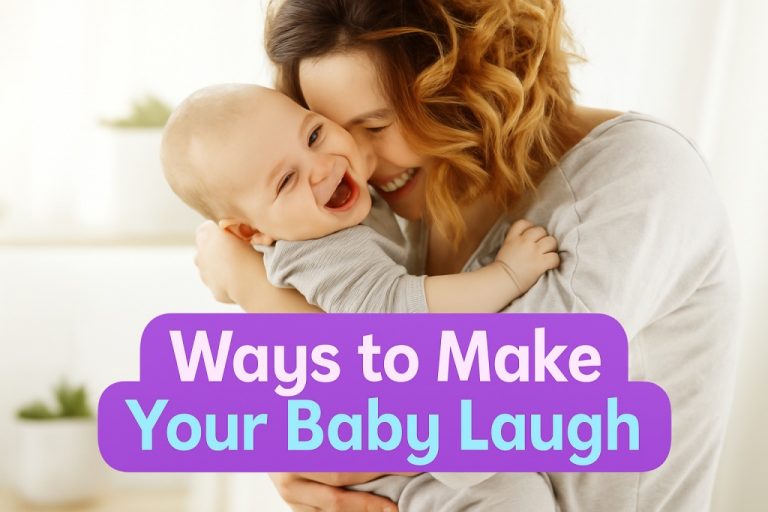
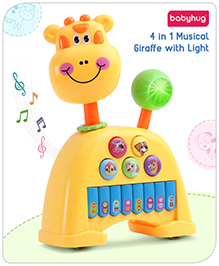
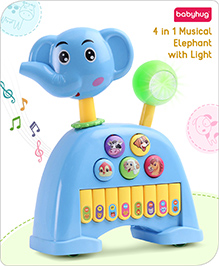
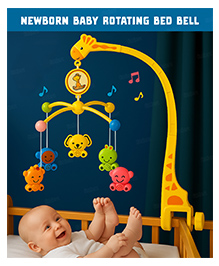
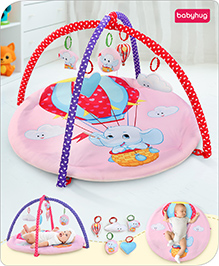
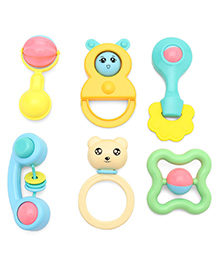
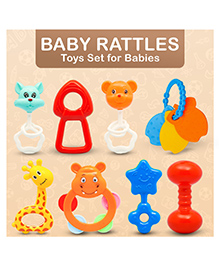

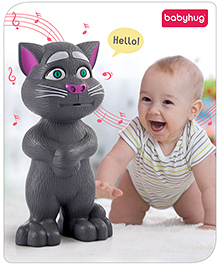
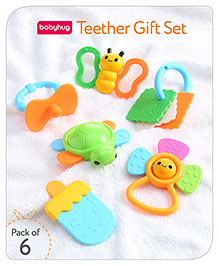
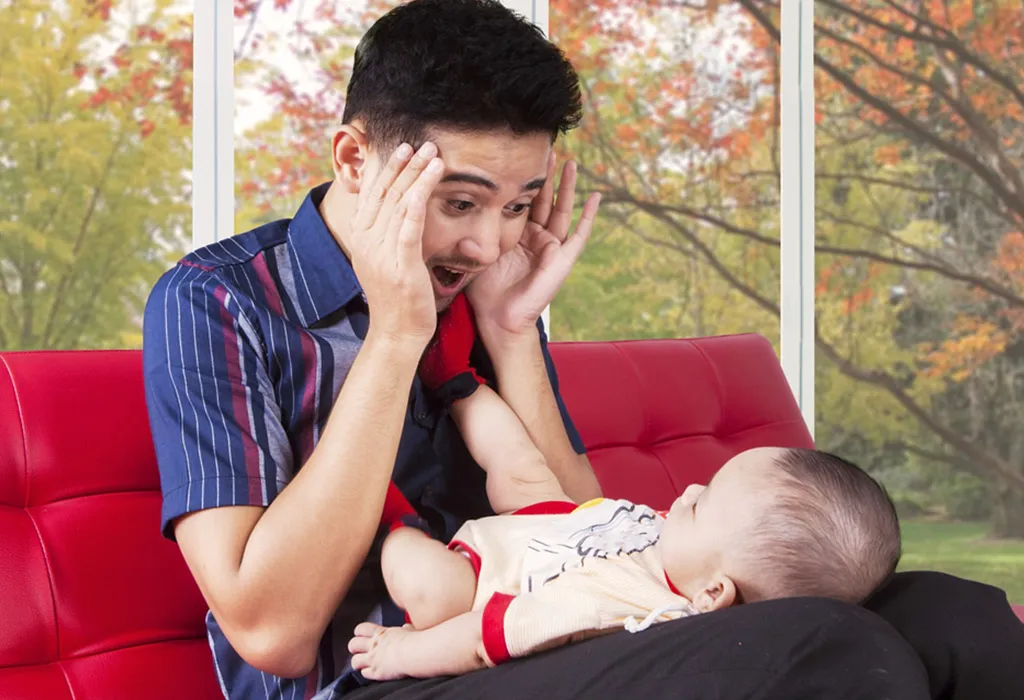
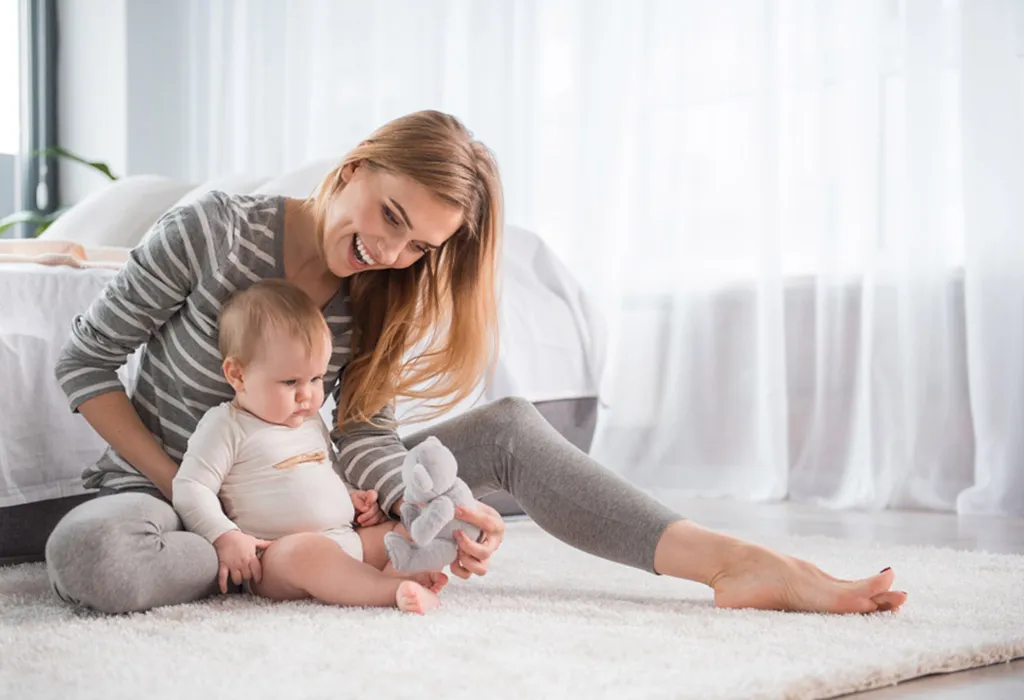
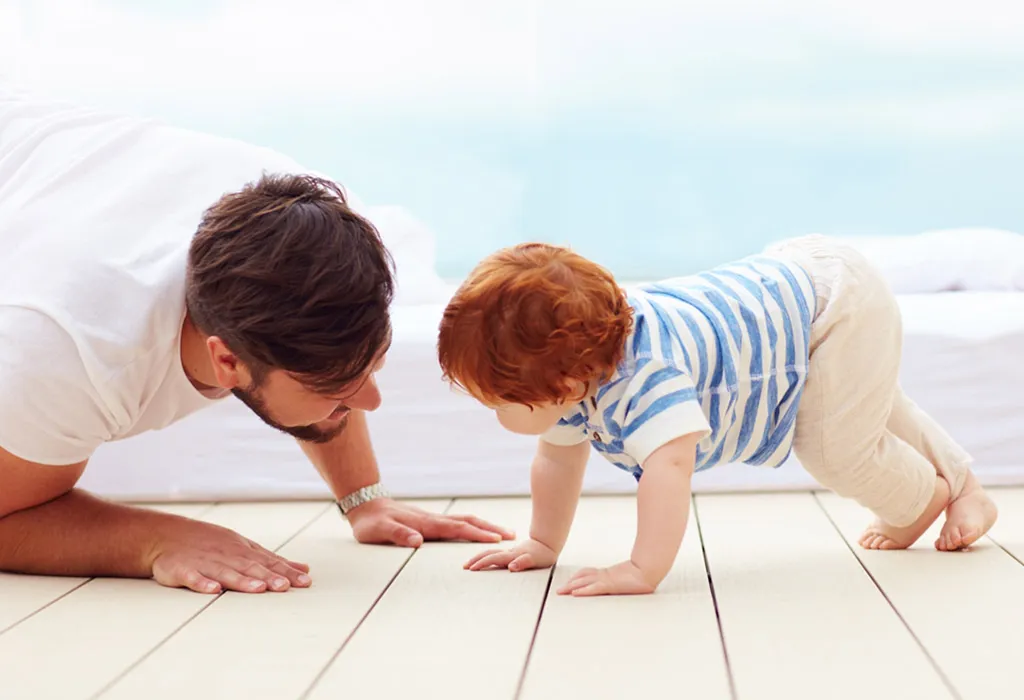
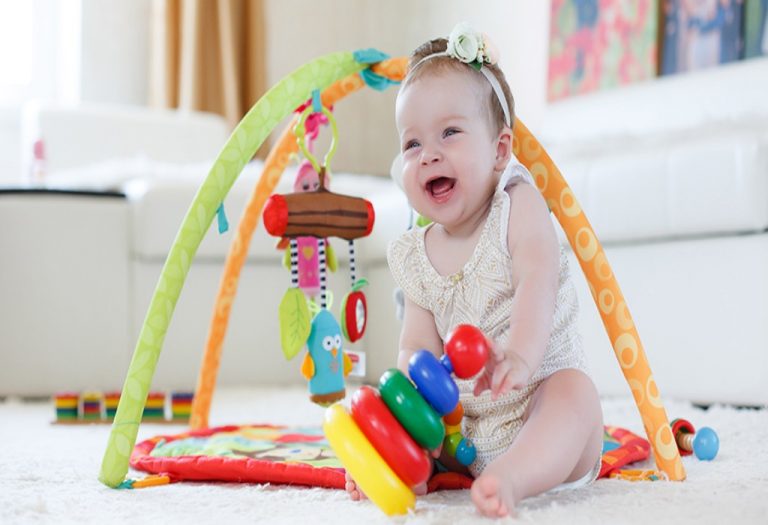
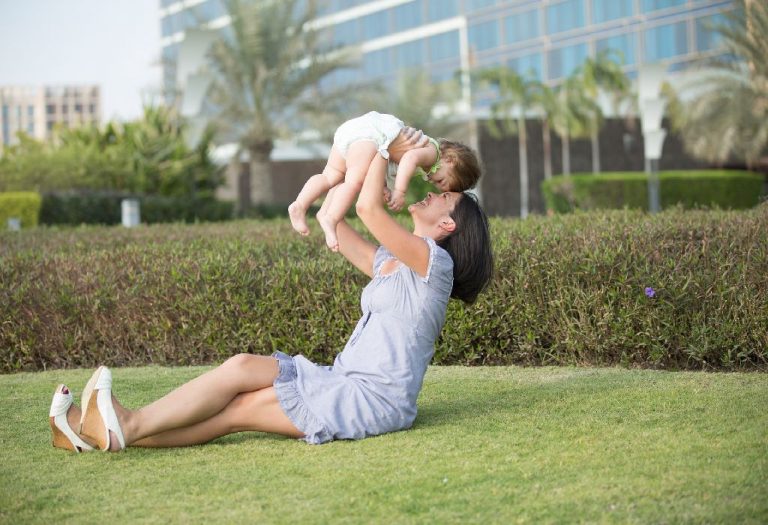


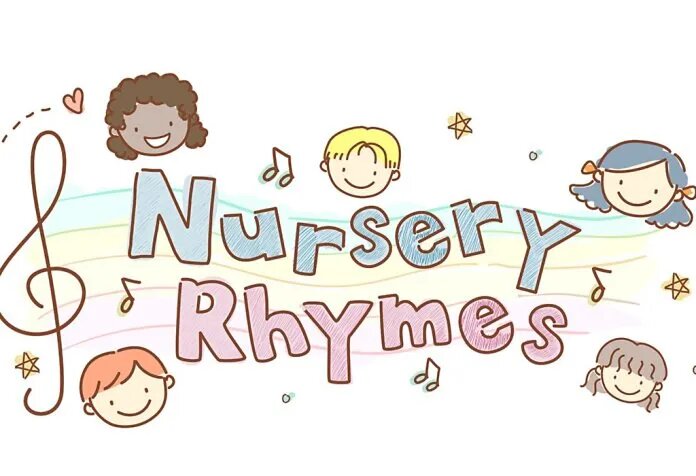
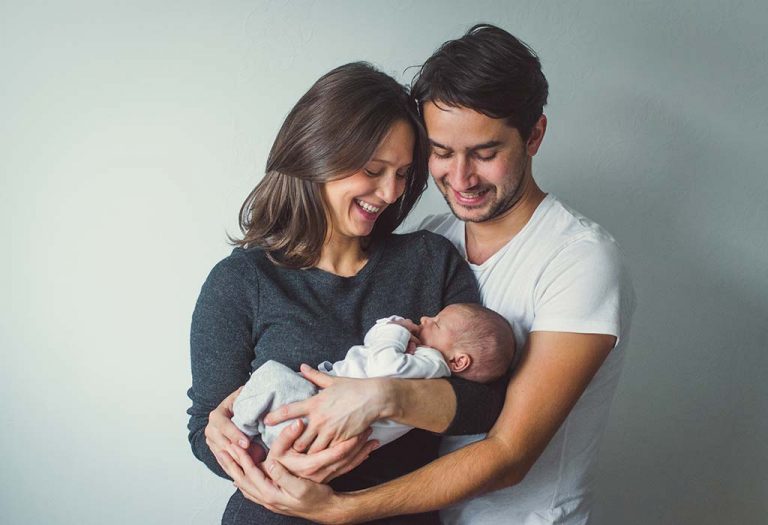

.svg)








